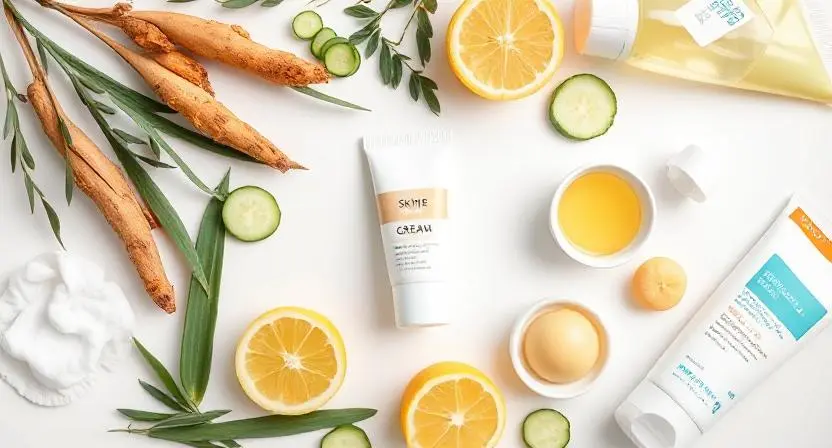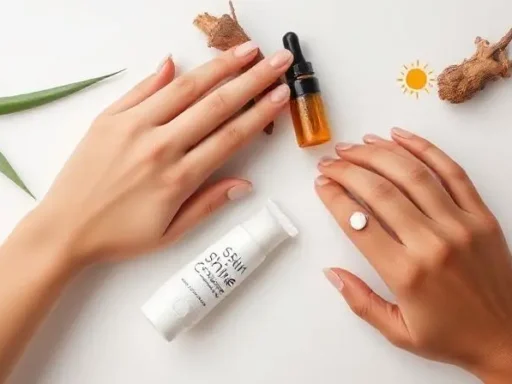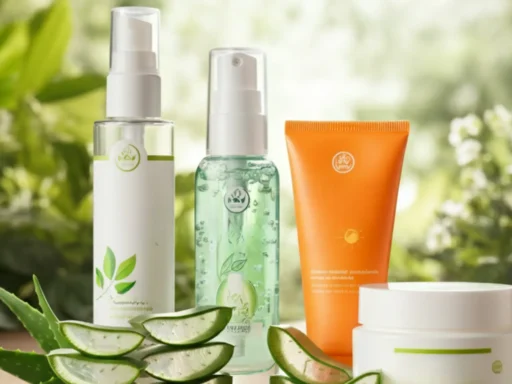Dealing with dark spots, uneven skin tone or hyperpigmentation? Skin Shine Cream has garnered attention for its targeted approach to tackling these issues head-on. Favored by beauty lovers and those seeking dermatological solutions, this cream promises a radiant, more even complexion. But is it as effective as its reputation suggests?
Here’s a comprehensive guide to help you understand its uses, application, potential risks and even some natural alternatives.
What Exactly Is Skin Shine Cream?
Skin Shine Cream is a dermatologically formulated treatment for pigmentation issues such as dark spots, melasma and acne scars. Its powerful formula makes it a popular choice for those looking to achieve brighter or more even skin.
Ingredients in Cream
1
Hydroquinone:
A skin-lightening agent used to reduce dark spots and pigmentation.
2
Tretinoin:
A vitamin A derivative that promotes skin renewal and improves skin texture.
3
Mometasone:
A corticosteroid that helps reduce inflammation and soothe redness.
Import Note: Always consult a dermatologist before using this cream to make sure it’s perfect for your skin type and conditions.
Uses of Skin Shine Cream
Skin Shine Cream is primarily used for the following purposes:
- Reducing Dark Spots and Pigmentation: It helps lighten stubborn marks caused by sun exposure, hormonal changes or aging.
- Treating Melasma: Ideal for treating dark patches caused by hormonal changes, often seen during pregnancy or menopause.
- Fading Acne Scars: The cream minimizes the appearance of acne scars by resurfacing the skin.
- Brightening Dull Skin: Enhances your complexion by reducing dullness and revitalizing tired skin.
- Even Skin Tone: Targets uneven pigmentation to promote a more uniform skin tone.
How does skin shine cream work?
Proper usage is crucial to get the most out of Skin Shine Cream while avoiding side effects. Follow these steps for safe application:
- Cleanse Your Skin: Use a gentle cleanser to wash your face and pat dry.
- Apply a Thin Layer: Take a pea-sized amount of the cream and apply it only to the affected areas.
- Use at Night: It’s best applied at night, as its ingredients can make your skin more sensitive to sunlight.
- Moisturize Afterward: After 30 minutes, apply a gentle moisturizer to combat dryness.
Additional Tips
Avoid applying the cream near sensitive areas like your eyes, nose, and mouth.
Use sunscreen daily, as the cream increases your skin’s sensitivity to UV rays.
Do not overuse the product, as this can lead to irritation.
Side Effects of Skin Shine Cream
While Skin Shine Cream is effective, improper usage can lead to side effects such as:
1
Redness and Irritation:
Sensitive skin types may experience redness, itching, or peeling.
2
Dryness:
It can cause the skin to become dry or flaky.
3
Sun Sensitivity:
Your skin may become more prone to UV damage.
4
Skin Thinning:
Prolonged usage without supervision can lead to thinning skin or stretch marks.
Always consult a dermatologist before using the cream, especially if you have pre-existing skin conditions.
Skin Shine Cream Alternatives: Home Remedies for Pigmentation
If you’re searching for natural alternatives, there are effective home remedies that address pigmentation safely and gently:
Aloe Vera Gel
Aloe vera contains a compound called aloin, which has natural depigmenting properties. Apply fresh aloe vera gel directly to the affected areas and leave it on overnight. This soothing remedy not only helps lighten dark spots but also hydrates and nourishes the skin, making it healthier over time.
Turmeric Paste
Turmeric is widely used for skin brightening due to its active ingredient, curcumin, which has antioxidant and anti-inflammatory properties. Mix a teaspoon of turmeric powder with honey or yogurt to form a paste. Apply this to pigmented areas and leave it on for 15-20 minutes before washing off. Regular use can help reduce pigmentation and improve skin’s overall complexion.
Lemon Juice
Rich in vitamin C, lemon juice acts as a natural bleaching agent. It helps lighten dark spots by reducing melanin production in the skin. Dab fresh lemon juice onto the affected areas with a cotton ball, leave it on for 10 minutes, then rinse off. Follow up with sunscreen during the day, as lemon juice can make your skin more sensitive to sunlight.
Potato Slices
Potatoes contain an enzyme called catecholase, which is known for its skin-lightening properties. Slice a potato and rub it gently on the areas with pigmentation in a circular motion. Alternatively, extract potato juice and apply it directly to your skin. With regular use, potatoes can gradually reduce dark spots and give your skin a more even tone.
Cucumber Juice
Cucumbers are naturally cooling and hydrating, making them an excellent choice for soothing irritated skin while addressing pigmentation. Blend cucumber into a juice and apply it to the skin as a toner. The antioxidants in cucumber help rejuvenate your skin and improve its texture, while also reducing discoloration.
Though these remedies are milder than chemical treatments, consistency is key for noticeable results.
Final Thoughts
Skin Shine Cream is a good solution for tackling pigmentation, but it’s important to use it wisely and under professional guidance. Knowing its benefits and risks will help you integrate it safely into your skincare routine.
If you’re exploring natural alternatives like aloe vera or turmeric or you’re ready to try a scientifically-backed product, the choice ultimately depends on your skin’s unique needs. Be patient, protect your skin with sunscreen and always prioritize consistency in your skincare routine. Your skin deserves proper care!
Frequently Asked Questions (FAQs)
It is used to treat pigmentation issues, dark spots, acne scars, melasma, and uneven skin tone.
It can be applied daily for a limited period under dermatologist supervision. Prolonged daily usage may cause side effects like redness or skin thinning.
This cream is usually recommended for adults. It is not advised for children or teenagers unless prescribed by a doctor.
Common side effects include redness, irritation, dryness, and sensitivity to sunlight. Long-term use may lead to skin thinning, so always use it as directed.






